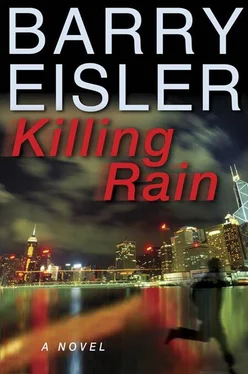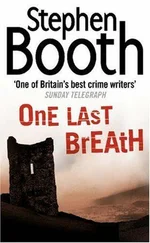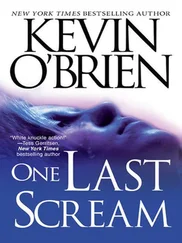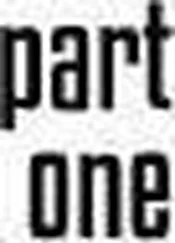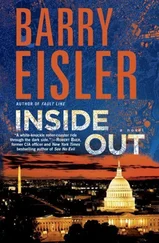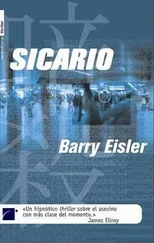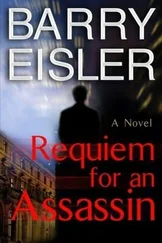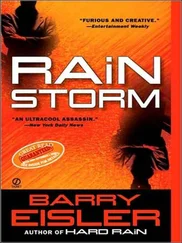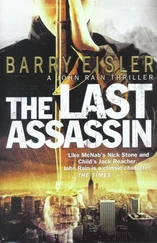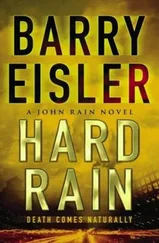“Well, that sucks. I was kind of picturing myself up on a rooftop with the dreaded M-40A3 and matching AN/PVS-10 nightscope. It would have been so civilized.”
I nodded. “That, or I could have just burst into their private room with a forty-five while they were enjoying the Peking duck. But maybe…”
He looked at me. “You’re thinking something devious there, partner, I can tell.”
I smiled. “I’m thinking about Hilger. He was armed last year at Kwai Chung.”
“Armed and dangerous,” he said, nodding. “That boy was a one-man killing machine. Had his primary in a waist holster or belly band, if I’m remembering correctly, and a backup on his ankle.”
“Think that was a one-time thing?”
“Hell, no. A guy like that, carry for him is routine. He’d feel naked without it.”
“And even if it’s not routine, we know he carries when he’s operational.”
“Like tomorrow night, for example.”
“For example.”
He stroked his chin and grinned. “Old Manny might be carrying, too. I would be, after what almost happened to him in Manila.”
“Exactly what I was thinking.”
“Nice of them, to bring the guns for us.”
I nodded. “All I need to do is get to one of them alone, from behind. Say, in a restroom.”
Dox cleared his throat. “You’re not worried about, you know, that when you see Manny like you did the last time…”
I shook my head, and felt something shift inside me like a block of frozen granite. “No,” I said. “I’m not worried at all.”
BECAUSE WINTERS AND COMPANY might have tracked Dox’s cell phone earlier in the day, the Grand Hyatt was no longer secure. We took extreme care in returning, and stayed just long enough to collect our gear. Then we went to Sukhumvit, using appropriate countersurveillance measures along the way, and took rooms at the Westin. Dox, chastened by the way Winters had almost gotten to us, didn’t argue with any of this.
I showered and shaved, then took an excruciatingly hot bath, which ordinarily helps me sleep. But I was still wired from that near miss in front of Brown Sugar. I had to leave for the airport at six o’clock, and if I didn’t get some rest soon, the next chance I’d get would be on the plane.
I pulled a chair over to the window and sat in the dark, looking down at Sukhumvit Road and the urban mass beyond it. There wasn’t much of a view-the Westin isn’t tall enough and the city itself is too congested. I wished for a moment, absurdly, that I was back in my apartment in Sengoku, the quiet part of Tokyo where I’d lived until the CIA and Yamaoto had managed to track me there. I’d never realized at the time how safe I felt there, how peaceful. It seemed a long time ago, and so much had happened in between. I realized I’d never even paused to mourn having been forced to leave. Until this moment, anyway. And now I couldn’t afford the distraction.
I thought about the plan Dox and I had come up with. It seemed sound, up to a point. But I wondered why the solutions I reached for always involved violence.
Violence, my ass. You’re talking about killing.
I smiled sardonically. When all you’ve got are hammers, everything starts to look like a nail.
Maybe my default settings were just horrifyingly stunted. Or warped. Maybe there were other, better ways, ways that long and unfortunate habit was preventing me from seeing.
Yeah, maybe. But the feeling of sitting there in the dark, running through the requirements of the next day’s operation, was momentarily so familiar to me that it carried with it the oppressive weight of fate.
I’ve been killing since that first Viet Cong, near the Xe Kong river, when I was seventeen. I’d kept count for a while, but long ago lost track entirely, something that horrified Midori, rightly, I supposed, when she had asked me about it. Could it really have just been circumstances that got me started so early and kept me going so long, or was there something about me, something intrinsic?
So many people seemed to recognize that I was a killer. Tatsu. Dox. The army shrinks. Carlos Hathcock, the legendary sniper I’d once met in Vietnam.
Why fight it? I thought. Just accept the evidence.
I remembered something from a childhood visit to church. Matthew, I think, where Jesus said:
Put your sword back in its place, for all who draw the sword will die by the sword.
I chewed on that for a moment. Then:
Bullshit. God doesn’t care. Like Dox said, if he did care, he would have done something by now.
If he did do something, would you even know what it was? Would you be paying attention?
I would if he fucking smote me, or whatever. Which is what I would do.
Maybe that was the point, though. All this time, I’d been expecting-hell, demanding-that God smite me down for my transgressions. And prove himself to me thereby. But what if God weren’t really in the smiting business? What if smiting were all man-made, and God preferred to communicate in more subtle ways, ways that men like me chose to pretend weren’t even there?
I leaned forward, my elbows on my knees, and looked at my hands as though they might offer me some answer. I wished I could get tired. I wanted so much to just sleep.
I thought of Musashi’s Go Rin No Sho , the Book of Five Rings, which I’ve read many times. In his recounting of his over sixty sword duels, and of the half-dozen large-scale battles in which he participated, Musashi had never expressed doubt about the morality of his actions. He seemed to take it as a given that men fought, killed, and died, and I doubted he gave much more thought to any of this than he did to the fact that men breathed and ate and slept. The one was as natural, and immutable, as the other. What mattered was one’s proficiency.
Somehow, Musashi had found a way to put down his sword as he got older. By the time he was in his late fifties, he spent most of his time teaching, painting, meditating, practicing tea, and writing poetry. And writing his profound book, of course. Eventually, he even managed to die in his bed. I didn’t find that notion at all unappealing. I just didn’t know how I was going to get there if I didn’t find a way to get out of this business.
When people take stock of their lives, I wondered, how do they go about it? From where do they derive their satisfaction, their sense of purpose? Sitting there, alone in that dark room, I tried to find some way to sum up my own existence, to justify who I am. And all I could come up with was:
You’re a killer.
I rested my head in my hands. I couldn’t think of anything else. Killing is all I’ve ever really been good at. Killing, and, I suppose, surviving.
But maybe… maybe I was missing the point. My nature might be immutable, but the causes to which I lent that nature, that was still for me to decide. And then it occurred to me: the dream I’d had, the one about the two katana . That’s what the dream had been about.
Regardless of the other services in which it might be employed, a sword is fundamentally a killing instrument. Yeah, you might use it as a doorjamb or as a letter opener, but that’s not what it’s designed for. It’s not what the sword, in its soul, longs to do. But its inherent nature isn’t what makes the sword good or bad; rather, the sword’s morality is determined by the use to which it is put. There is katsujinken , the sword that gives life, or weapon of justice; and setsuninto , the sword that takes life, or weapon of oppression. In the dream, some nameless thing had almost caught me because of my inability to decide. I couldn’t afford to keep making that mistake in my life.
Читать дальше
